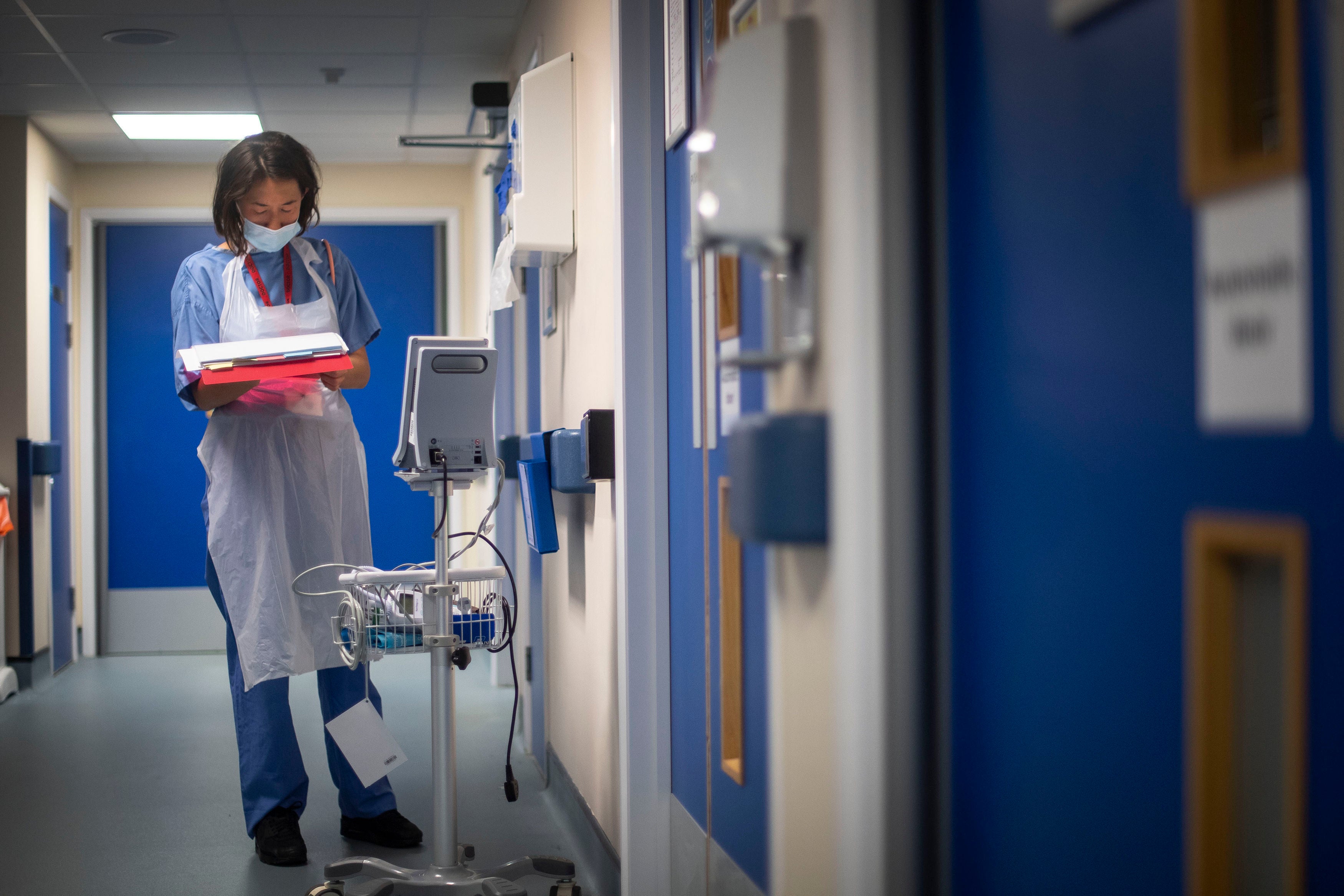Nurses and female healthcare workers most likely to suffer ‘mental distress during Covid crisis’
'It is so important that we identify the healthcare workers who are most at risk for distress and the factors that can be modified to reduce distress,' says researcher

Nurses and females healthcare workers are the most likely to suffer mental distress amid the Covid crisis, according to new research.
The major study, carried out by the University of Sheffield, discovered age did not have a substantial effect on healthcare employees’ levels of stress despite older people being at greater risk of severe complications from coronavirus.
Researchers, who also looked at workers’ responses to other infectious diseases such as SARS, Bird Flu, Swine Flu and Ebola, found psychological torment for health professionals can go on for up to three years after the pandemic first broke out.
Dr Fuschia Sirois, who lead the research which constitutes the biggest ever global review of psychological distress in healthcare workers in the wake of the coronavirus emergency, said: “Consistent evidence indicated that being female, a nurse, experiencing stigma and having contact or risk of contact with infected patients were the biggest risk factors for psychological distress among healthcare workers.
“As the world continues to tackle the Covid-19 pandemic it is so important that we identify the healthcare workers who are most at risk for distress and the factors that can be modified to reduce distress and improve resilience.”
She argued “feeling in control”, social support, ensuring people are properly educated about the pandemic, and adequate personal protective equipment, training and proper resources, were linked to people suffering less psychological distress.
Dr Sirois added: “It was interesting to see that factors such as age didn’t appear to have a significant impact - even during Covid-19. In some studies older people weren’t distressed - perhaps because they had worked as healthcare professionals for many years and therefore felt more equipped in dealing with an outbreak.”
She noted younger people on the other hand were more distressed due to having less experience of handling a pandemic - even though their health is less at risk from Covid.
Researchers looked at age, sex and job role as well as "social psychological and infection-related" factors in more than 143,000 healthcare workers from around the world - with data spanning from 2000 to 2020.
The study, published in medical journal Frontiers in Psychiatry, discovered while people reaped advantages from having a social network to lean on, having a partner or children you live with leads to greater stress for many who had fears of inadvertently giving them Covid-19.
It comes after The Independent recently reported maternity staff are facing serious burnout during the pandemic as staff shortages and longer, more hectic shift patterns lead to the workforce becoming increasingly overwhelmed.
Healthcare leaders in pregnancy services warned stress-related absences have reached “worryingly” high levels and the pandemic will lead to a rise in doctors, nurses and midwives suffering post-traumatic stress disorder (PTSD) and other mental health issues.
While 75 per cent of NHS workers are women, the nursing sector is predominantly made up of women – with nine out of 10 nurses in the UK being female.
Subscribe to Independent Premium to bookmark this article
Want to bookmark your favourite articles and stories to read or reference later? Start your Independent Premium subscription today.

Join our commenting forum
Join thought-provoking conversations, follow other Independent readers and see their replies